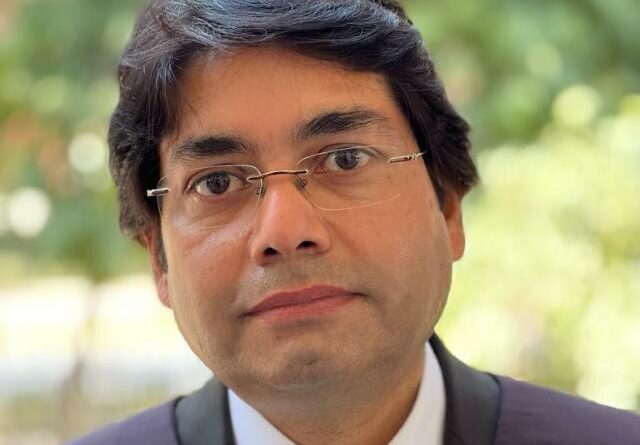Relief for Y. Srilakshmi: Apex Court Stays Proceedings in Obulapuram Case
(Syed Ali Taher Abedi)
New Delhi, August 29: The Supreme Court on Thursday stayed trial proceedings against senior IAS officer Y. Srilakshmi in the high-profile Obulapuram mining scam.
The apex court passed the interim order while hearing her plea challenging the Telangana High Court’s decision that had dismissed her discharge petition.
Srilakshmi had earlier moved the trial court after a supplementary charge sheet named her in the case. She argued that there were only suspicions against her and no concrete allegations to justify framing charges. In 2022, however, the trial court had rejected her plea for discharge, leading her to approach the higher judiciary.
“The petitioner/A6 contended that there is no criminal conspiracy with the other accused by the petitioner/A6 and Section 120-B & 409 IPG do not applicable. The contention of the petitioner that the prosecution alleged that the role of the petitioner/A6 is entirely suspicious”
With the Supreme Court’s stay, further proceedings in the case against the IAS officer will remain suspended until further orders.
Following the discharge of the petitioner by the High Court on November 8, 2022, pursuant to a revision petition filed by her, the Central Bureau of Investigation (CBI) challenged the decision before the Supreme Court. On May 7, the Supreme Court allowed the CBI’s appeal and remitted the matter back to the High Court with directions to pass a reasoned order. Ultimately, the High Court dismissed her criminal revision petition.
A bench comprising Justice MM Sundaresh and Justice N.K. Singh issued notice in a Special Leave Petition (SLP) filed against the High Court’s decision. The petition was argued by Senior Advocate Siddharth Dave. During the hearing, Justice Sundaresh notably remarked that the High Court’s order appeared “very strange.”
By an order dated the 25th, the Telangana High Court declined to proceed further with the case, effectively refusing to entertain charges under Sections 120-B, 409, and 13(2) read with Section 13(1)(d) of the Prevention of Corruption Act, 1988.
“The contention of the petitioner/A6 that the word “captive consumption” was nowhere mentioned in the Act and on 14.06.2007 A2 addressed a letter to the Chief Minister of A.P. to allot 25 Ha. of mining for “captive consumption” and all the process was completed.”
The allegations against the petitioner pertain to her tenure as Secretary, Industries and Commerce, Government of Andhra Pradesh, between 2006 and 2009. It is alleged that she abused her official position by omitting the condition of captive mining in the final lease agreements and issued government notifications favouring M/s Mining Company Private Limited.
“It is to be noted that on 20.10.2006, at the Secretary level it was decided to address a letter to the Government of India, accordingly they addressed a letter on 20.10.2006 for orior approval and for prior permission from Government of India for grant of ML for iron ore to an extent of 39.481 Ha. in Sy.No.l/P, Obulapuram Village, D.Hirehal Mandal, Anantapur District by invoking Sect or 11(5) and 5(1) of MMDR Act. Meanwhile several objections were creped up, the note file shows that signature of the Minister and the petitioner/A6 were obtained on 26.12.2006, two months prior to approval from the Minister, the petitioner/A6 has submitted the proposal to the Government of India. On 30.10.2006, after objections from the Government of India, they obtained affidavits from G.Suresh Babu and Sunil Kumar Earla and submitted a letter to the Government of India. On 25.05.2007, Government of India approved, later a show-cause notice was issued to M/s. Gimpex Limited and Parameswar Reddy and the Secretary and Minister signed on 18.06.2007, on the same day G.O.Ms.No.152 was issued.” It is submitted in the SLP
The SLP was drawn and filed by AOR Farrukh Rasheed.
She is further accused of defrauding the government by violating provisions of the Mines and Minerals (Development and Regulation) Act, 1957, and the Mineral Concession Rules, 1960, thereby causing substantial loss to the public exchequer.




